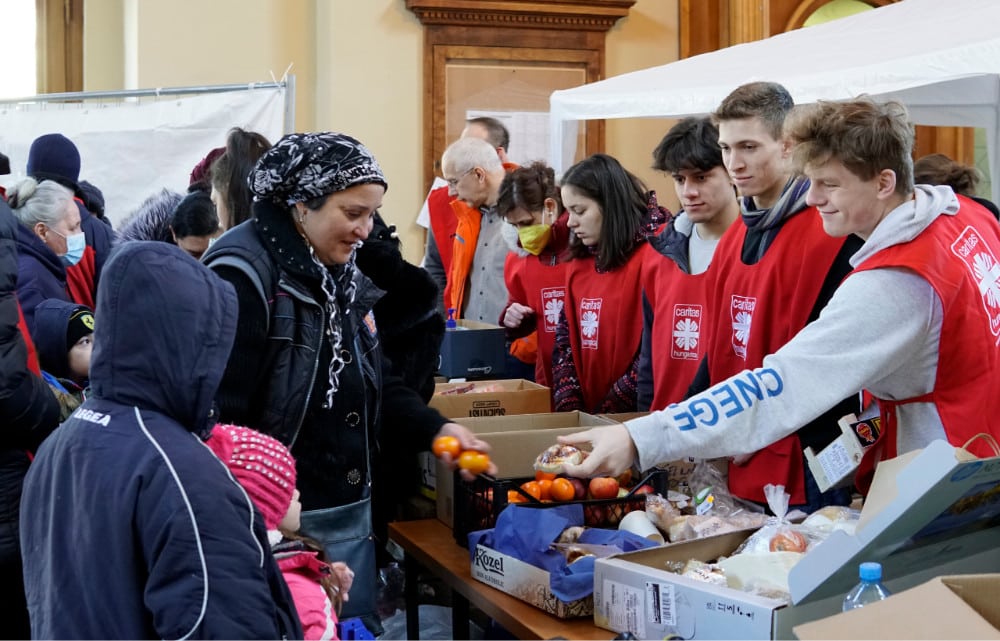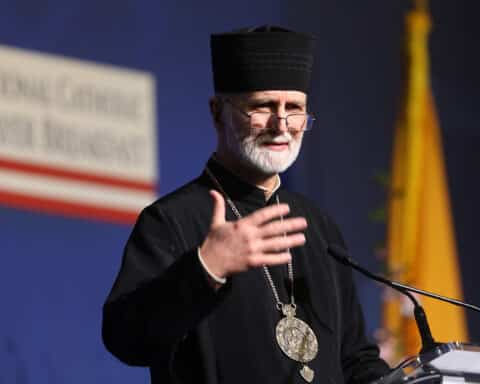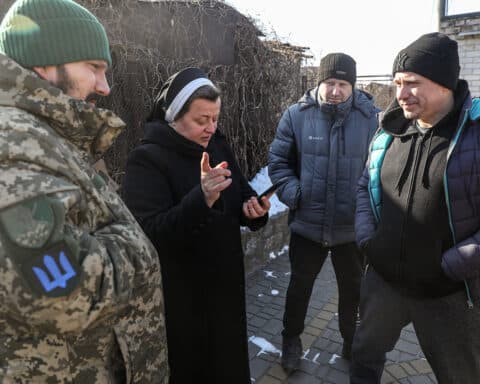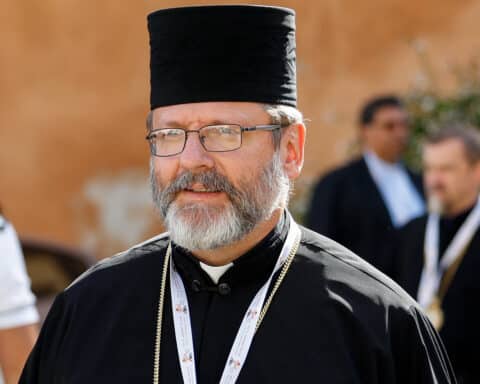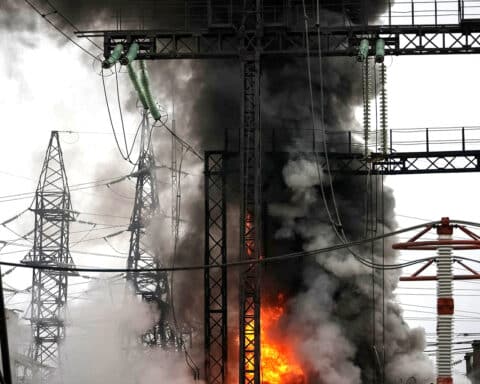Throughout much of the mid-1930s, after Adolf Hitler rose to power in Germany in 1933, the country began enacting policies aimed at repressing Jewish culture — such as encouraging the boycotting of Jewish businesses and dismissing Jews from holding civil posts. The Nazi Party’s embrace of nationalism gave rise to anti-Semitism, and those policies transitioned from repression to the outright persecution of German Jews.
Early on, the Nazi Party’s enforcement of these anti-Semitic policies was largely nonviolent. But on Nov. 9-10, 1938 — nearly a year before the acknowledged start of World War II — Hitler’s forces and other members of the Nazi Party torched and vandalized thousands of Jewish synagogues, hospitals, cemeteries, businesses, homes and schools across the country. The rise in violence that began on Kristallnacht caused many Jews to flee Nazi Germany. Pope Pius XII instructed bishops across Europe to come to the aid of Jewish refugees, who were then offered shelter in churches, monasteries, schools and elsewhere — including the Vatican itself.
The Church responded. It always responds.
In 1947, shortly after the end of World War II, Pope Pius XII wrote of the Church’s duty — our duty — to care for the orphans of war: “At this tragic moment of history, when — alas — material and spiritual ruins are piled high … we almost seem to see with our own eyes the vast hosts of children weakened or at death’s door through starvation. … How, then, can we desist, venerable brethren, when we love those children of ours so intensely in the heart of Jesus Christ; how can we desist from appealing again and again to you all individually and collectively and to all throughout the world who, like you, are inspired with a sense of mercy and piety, so that the full force of Christian charity — and it is a mighty force — may be pooled by willing and generous souls in order to mitigate and relieve their piteous condition” (Quemadmodum, Nos. 11-12).
From the wars in Korea, Vietnam, Iraq and Afghanistan, to humanitarian crises around the world and in the United States, the popes have urged the Church to respond with compassionate action that mirrors Christ in the Gospels: prayer, fasting and almsgiving, as well as the corporal works of mercy. And once again, in Ukraine and its neighbors, we have seen this “full force of Christian charity” mobilize in order to serve those most in need.
In this week’s In Focus, Dominican Father Patrick Briscoe, editor-in-chief of the English edition of Aleteia.org, recounts stories from the front lines of the effort to offer relief to some of the 2.5 million Ukrainian refugees who have flooded into neighboring countries. Father Briscoe is working with members of the Knights of Columbus, which partnered with Caritas Poland to send medical supplies over the border into Ukraine and establish aid stations along its border with Poland.
In his report, Father Briscoe also shares the story of Chloe Arnold, who came from Great Britain to Poland to volunteer. She speaks Russian, and she knew there was a need for translators. She felt a calling and came to help. Arnold told Father Briscoe about a young Ukrainian refugee, 11 or 12 years old. “She was just sitting there” at the refugee center, Arnold said. “She’d been given a bar of chocolate, she’d been given a toy, but you can tell, you know, they’ve been traumatized.” So, too, have the mothers, Arnold said. “They’ve left sons behind, they’ve left fathers behind.”
As much as we’d like to, not all of us can fly to Poland or Hungary or Romania to volunteer, but that doesn’t mean we can’t serve those fleeing from the war in Ukraine. For the remainder of Lent, we can dedicate our prayers and our fasting for those who have been forced to leave Ukraine, as well as for those who remain to fight for its independence. We can pray for the souls of those who have lost their lives, and we can pray for the thousands of volunteers who have worked tirelessly to be the hands and face of Christ to those who need him the most.
Arnold told Father Briscoe that “we have to help them on the very, very first stage of what is going to be a long journey.”
As it has done so often in the past, may the full force — the mighty force — of Christian charity be there to accompany the people of Ukraine.
Our Sunday Visitor Editorial Board: Gretchen R. Crowe, Scott P. Richert, Scott Warden, York Young

